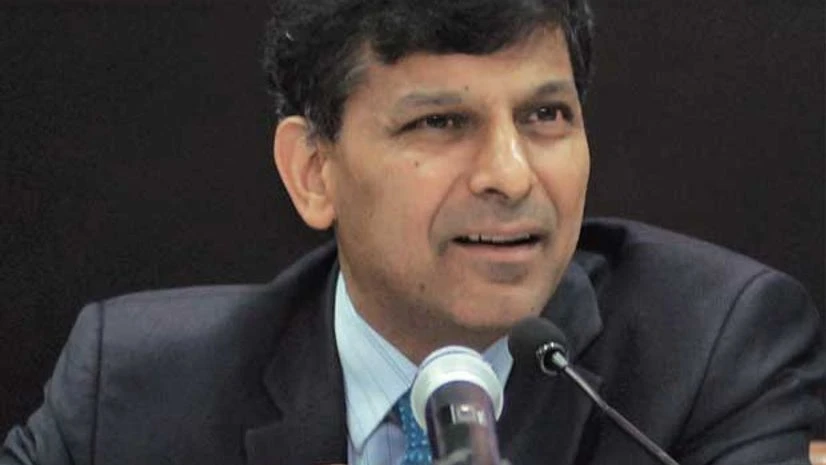Reserve Bank of India (RBI) Governor Raghuram Rajan said on Saturday that there needs to be a co-ordinated global discussion on the spillover effects of monetary policy actions of larger economies on the rest of the world.
Speaking at the Advancing Asia summit in New Delhi, Rajan also said that the larger economies needed to be more aware of the risks involving their monetary policies, which almost always focus inwards and tend to overlook the spillover effect on the smaller economies.
“Given the importance of spillovers from monetary policies, especially in the face of low inflation globally, it is important we start building a global consensus on how to get better outcomes for the world,” Rajan said.
“As central bankers flirt with ever more unconventional policies, it is worth asking if these policies really move the economy towards the desired objective,” he added.
The governor said that monetary policies had external spillover effects but that did not mean they were all justified. What mattered was the net spillovers. “One source of spillovers is through the trade channel, the relative magnitude of demand creating-versus-demand switching effects. Another source of spillovers is through cross-border capital flows, and their effect on financial stability elsewhere,” he said.
“In the current state of affairs, industrial country central banks find all sorts of ways to justify their policies in international fora, without acknowledging the unmentionable — that the exchange rate may be the primary channel of transmission, and that adverse capital flow spillovers may be sizeable.”
He said monetary policies of certain countries have adverse impact globally but there has been no open discussion on this.
“And so this is the unmentionable monetary policy we don’t talk about. We have veil language often — sometimes more explicit. But this is the big source of effects in the global economy. I think it is time we brought it out in the open and talked about it without necessarily being on the defensive but trying to understand better what the longer-run effects are whether they are moving us to the right direction,” he said.
Speaking at the Advancing Asia summit in New Delhi, Rajan also said that the larger economies needed to be more aware of the risks involving their monetary policies, which almost always focus inwards and tend to overlook the spillover effect on the smaller economies.
“Given the importance of spillovers from monetary policies, especially in the face of low inflation globally, it is important we start building a global consensus on how to get better outcomes for the world,” Rajan said.
“As central bankers flirt with ever more unconventional policies, it is worth asking if these policies really move the economy towards the desired objective,” he added.
The governor said that monetary policies had external spillover effects but that did not mean they were all justified. What mattered was the net spillovers. “One source of spillovers is through the trade channel, the relative magnitude of demand creating-versus-demand switching effects. Another source of spillovers is through cross-border capital flows, and their effect on financial stability elsewhere,” he said.
“In the current state of affairs, industrial country central banks find all sorts of ways to justify their policies in international fora, without acknowledging the unmentionable — that the exchange rate may be the primary channel of transmission, and that adverse capital flow spillovers may be sizeable.”
He said monetary policies of certain countries have adverse impact globally but there has been no open discussion on this.
“And so this is the unmentionable monetary policy we don’t talk about. We have veil language often — sometimes more explicit. But this is the big source of effects in the global economy. I think it is time we brought it out in the open and talked about it without necessarily being on the defensive but trying to understand better what the longer-run effects are whether they are moving us to the right direction,” he said.
Rajan warned that strong policy prescriptions on a coordinated global monetary policy action that negates adverse spillover effect was unlikely anytime soon given like central banks have explicit domestic mandates.
However, he suggested a period of focused discussion, first outside international meetings, then within international meetings. “Such a discussion need not take place in an environment of finger pointing and defensiveness, but as an attempt to understand what can be reasonable, and not overly intrusive, rules of conduct,” he added.
“As consensus builds on the rules of conduct, we can contemplate the next step of whether to codify them through international agreement, see how the articles of multilateral watchdogs like the IMF will have to be altered, and how country authorities will interpret or alter domestic mandates to incorporate international responsibilities.”
Rajan also warned against unconventional policies, like asset purchases which may provide a benefit for the domestic economy but leads to a negative spillover.
“For example, if unconventional monetary policy actions lead to small positive effects on exports to emerging economies (EMs) and a feeble recovery in the source country but large capital outflows and asset price bubbles in the EMs, these policies could be rated Red. Global welfare would decrease with this policy,” he said.
“The international community has a choice. We can pretend all is well with the global financial non-system and hope that nothing goes spectacularly wrong. Or we can start building a system for the integrated world of the twenty first century. I do hope we can consider some initial steps,” the governor concluded.

)
